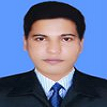



Section Collection Information
Dear Colleagues,
The impact of Sustainable Urban and Rural Development extends beyond the present and has implications for the future of both local communities and the global environment. The concept of "Sustainable Urban and Rural Development" encompasses a multitude of sustainability aspects, including energy efficiency and the adoption of renewable energy sources. Collaboration and prioritization of these areas are essential to secure a sustainable and promising future for future generations.
Energy efficiency and renewable energy are considered to be fundamental components of Sustainable Urban and Rural Development. The built environment is a significant consumer of energy, and suboptimal energy utilization is a contributing factor to environmental deterioration and an escalation in our carbon emissions. The implementation of energy-efficient practices and the adoption of renewable energy sources can lead to a decrease in energy consumption, a reduction in greenhouse gas emissions, an improvement in the overall performance of buildings, transportation systems, and infrastructure, and a decrease in air pollution. This will not only yield positive environmental outcomes but also generates considerable economic benefits, enhances public health, and augments the comfort levels of inhabitants representing an investment that yields benefits for both the environment and the communities involved.
As experts in our respective domains, we possess a distinctive chance and obligation to promote sustainable development in both urban and rural areas. It is possible to promote policy modifications, suggests inventive resolutions, and execute optimal methodologies that prioritize sustainability, energy efficiency, and the adoption of renewable energy sources. Through collaborative efforts and knowledge sharing, it is possible to generate an impact of constructive transformation that transcends the boundaries of our local communities.
Thus, we are interested in the collection of research articles and reviews in this area of study.
We look forward to receiving your contributions.
Leading Section Editor:
Prof. Cesare Forzano




